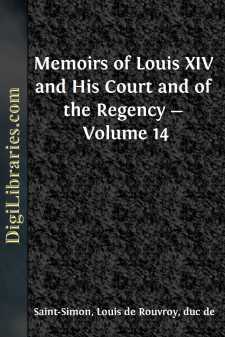History
- Africa 30
- Americas (North Central South West Indies) 50
- Ancient 68
- Asia 58
- Australia & New Zealand 8
- Canada 41
- Caribbean & West Indies 1
- Civilization 20
- Eastern Europe 12
- Europe
- Expeditions & Discoveries 60
- General 77
- Historical Geography 1
- Jewish 9
- Latin America 3
- Medieval 8
- Middle East 13
- Military 248
- Revolutionary 8
- Study & Teaching 5
- United States 353
- Western Europe 56
- World 13
Europe Books
Sort by:
Canaples, brother of the Marechal de Crequi, wished to marry Mademoiselle de Vivonne who was no longer young, but was distinguished by talent, virtue and high birth; she had not a penny. The Cardinal de Coislin, thinking Canaples too old to marry, told him so. Canaples said he wanted to have children. "Children!" exclaimed the Cardinal. "But she is so virtuous!" Everybody burst out...
more...
INTRODUCTORY. "If humour only meant laughter," said Thackeray, in his essay on the English humorists, "you would scarcely feel more interest about humorous writers than the life of poor Harlequin, who possesses with these the power of making you laugh. But the men regarding whose lives and stories you have curiosity and sympathy appeal to a great number of our other faculties, besides our...
more...
by:
Thomas Carlyle
A DAY WITH FRIEDRICH.—(23d July, 1779.) "OBERAMTMANN (Head-Manager) Fromme" was a sister's son of Poet, Gleim,—Gleim Canon of Halberstadt, who wrote Prussian "grenadier-songs" in, or in reference to, the Seven-Years War, songs still printed, but worth little; who begged once, after Friedrich's death, an OLD HAT of his, and took it with him to Halberstadt (where I hope it...
more...
by:
Lewis Goldsmith
PARIS, August, 1805. MY LORD:—No Sovereigns have, since the Revolution, displayed more grandeur of soul, and evinced more firmness of character, than the present King and Queen of Naples. Encompassed by a revolutionary volcano more dangerous than the physical one, though disturbed at home and defeated abroad, they have neither been disgraced nor dishonoured. They have, indeed, with all other Italian...
more...
by:
John Ashton
CHAPTER I. The Queen’s Accession—Proclamation—Funeral of the King—The Queen and social functions—Mr. Montefiore—Amusing letter—Electric telegraph—Knocker wrenching—Amusements of the young aristocracy. King William the Fourth was as sincerely fond of his niece, Alexandrina Victoria, as he cordially detested her mother, and he earnestly hoped that she might obtain her majority, which...
more...
RICHARD THE FIRST, Second sonne to Henrie the second. An. Reg. 1.1189. Richard the first of that name, and second sonne of Henrie the second, Wil. Paruus. began his reigne ouer England the sixt day of Julie, in the yere of our Lord 1189. in the seauen and thirteeth yeare of the emperour Frederike the first, in the eleuenth yere of the reigne of Philip the second king of France, and king William...
more...
by:
George Edmundson
CHAPTER I [pg.1] THE BURGUNDIAN NETHERLANDS The last duke of the ancient Capetian house of Burgundy dying in 1361 without heirs male, the duchy fell into the possession of the French crown, and was by King John II bestowed upon his youngest son, Philip the Hardy, Duke of Touraine, as a reward, it is said, for the valour he displayed in the battle of Poictiers. The county of Burgundy, generally known as...
more...
In December, 1651, the Parliament agreed to the following resolution: To send a deputation to the King to inform him of the rumours of Mazarin's return, and to beseech him to confirm the royal promise which he had made to his people upon that head; to forbid all governors to give the Cardinal passage; to desire the King to acquaint the Pope and other Princes with the reasons that had obliged him...
more...
For a long time a species of war had been declared between the King of England and his son, the Prince of Wales, which had caused much scandal; and which had enlisted the Court on one side, and made much stir in the Parliament. George had more than once broken out with indecency against his son; he had long since driven him from the palace, and would not see him. He had so cut down his income that he...
more...
THE Revolution had been accomplished. The decrees of the Convention were everywhere received with submission. London, true during fifty eventful years to the cause of civil freedom and of the reformed religion, was foremost in professing loyalty to the new Sovereigns. Garter King at arms, after making proclamation under the windows of Whitehall, rode in state along the Strand to Temple Bar. He was...
more...



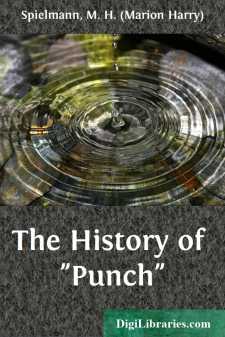
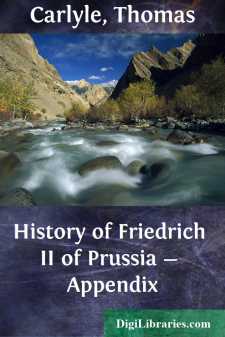
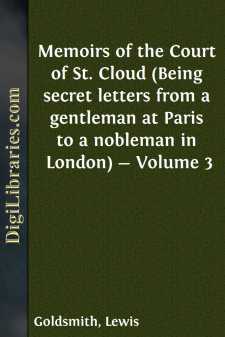


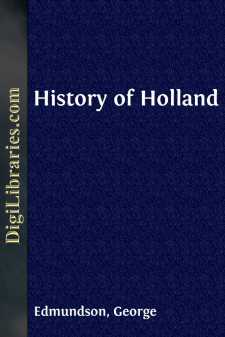
![The Memoirs of Cardinal de Retz - Volume 4 [Historic court memoirs]](https://digilibraries-com.s3.eu-central-1.amazonaws.com/covers/1a07b218-3a0c-4524-9595-7102796947bc.jpg)
